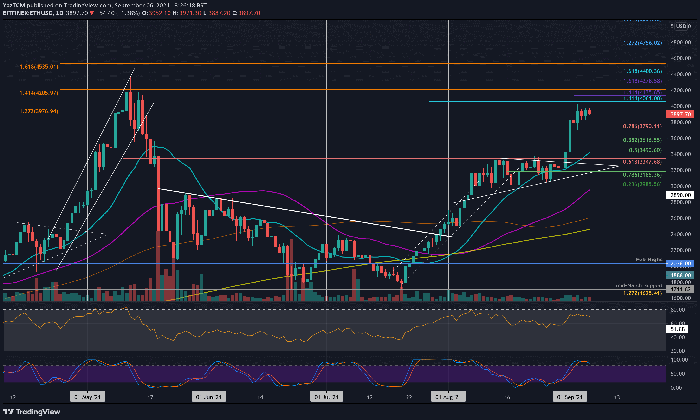Cryptocurrency regulation has become a pivotal topic in today’s financial landscape, especially following recent revelations from the U.S. Department of Justice (DOJ). The agency officially announced a halt in the pursuit of criminal cases against those engaged with digital assets, including exchanges and developers. This decision, which stems from the disbanding of the National Cryptocurrency Enforcement Team (NCET), marks a significant shift in cryptocurrency enforcement strategies. Rather than targeting regulatory violations tied to the Bank Secrecy Act or unlicensed money transmission, the DOJ will refocus its efforts on actionable criminal cases that threaten investors and facilitate serious crimes, such as fraud and trafficking. As the dialogue around cryptocurrency enforcement evolves, understanding the implications of this regulatory transition becomes increasingly crucial for stakeholders in the digital asset space.
The arena of digital currency governance is experiencing a transformative phase, particularly as government bodies revise their approaches to regulation and compliance within the sector. Recent updates from entities like the U.S. Department of Justice have prompted discussions on the future of cryptocurrency oversight. Instead of waging legal battles against exchanges and platforms that operate in good faith, the focus has shifted toward addressing more pressing criminal activities associated with cryptocurrencies. The disbanding of specialized units like the National Cryptocurrency Enforcement Team signifies a reevaluation of enforcement priorities, emphasizing protection over punitive actions for regulatory missteps. As these changes unfold, understanding the new landscape of digital asset regulation is paramount for businesses and consumers alike.
The DOJ’s New Stance on Cryptocurrency Enforcement
The U.S. Department of Justice has made a landmark decision to shift its approach toward cryptocurrency regulation. With the formal announcement that it will not pursue criminal cases against cryptocurrency exchanges or developers for regulatory violations, the DOJ is redefining its role within the digital asset ecosystem. This shift is a clear departure from prior enforcement practices, which often targeted companies and individuals in the crypto space under stringent legal interpretations. According to Deputy Attorney General Todd Blanche, this transformation reflects the agency’s recognition that it is not a regulatory body for digital assets, but rather an organization primarily focused on combatting actual criminal activities associated with the misuse of cryptocurrencies.
This new guidance does not mean that the DOJ is abandoning oversight of cryptocurrency entirely; rather, it emphasizes a more targeted approach. The agency plans to allocate its limited resources to prosecuting individuals who exploit cryptocurrency for harmful activities like fraud and human trafficking. The cessation of criminal cases related to regular operational compliance with laws like the Bank Secrecy Act marks a significant evolution in how the DOJ perceives and interacts with the burgeoning cryptocurrency market.
Lifting the Weight: NCET’s Disbanding and Its Implications
The disbanding of the National Cryptocurrency Enforcement Team (NCET) raises important questions regarding the future of cryptocurrency regulation and enforcement in the United States. This specialized unit was established to tackle criminal activities involving cryptocurrencies, and its dissolution marks a pivot away from aggressive enforcement strategies. The team’s past involvement in high-profile cases, such as the crackdown on Tornado Cash, illustrated the government’s intent to regulate the crypto space through punitive measures. However, the recent strategic shift suggests that the DOJ believes a more balanced approach to cryptocurrency regulation is necessary.
The implications of closing the NCET go beyond just regulatory adjustments; it signals a broader re-evaluation of digital asset law enforcement. By ceasing to pursue cases against exchanges for regulatory violations, the DOJ is potentially promoting a more innovative environment for cryptocurrency development. This new philosophy opens avenues for regulatory clarity and could facilitate the growth of the digital asset ecosystem, as developers and exchanges may feel less threatened by aggressive state-level enforcement. With growing calls for clearer cryptocurrency regulation, stakeholders within the industry are hoping this shift could foster collaboration between regulation and innovation.
The Future of Cryptocurrency Regulation in the U.S.
The latest developments regarding cryptocurrency enforcement indicate a possible shift toward more comprehensive and collaborative digital asset regulation in the U.S. As the DOJ steps back from its previous aggressive enforcement stance, industry stakeholders are advocating for regulatory frameworks that sustain innovation within the crypto market while ensuring consumer protection. This indicates a potential increase in constructive dialogue between regulators and digital asset creators to craft guidelines that support and stimulate growth. Such measures would allow organizations to operate within legal parameters while minimizing the bureaucratic burden often associated with compliance.
However, the future remains uncertain as the industry navigates this new regulatory landscape. With some lawmakers still pushing for stringent enforcement in response to cryptocurrency being associated with illicit activities, there remains a tightrope walk between innovation and regulation. The challenge lies in finding a balance that promotes the advantages of blockchain technology while curtailing its misuse. As discussions about cryptocurrency regulation evolve, both industry players and policymakers must work together to establish sensible guidelines that protect consumers without stifling the expansion of this revolutionary technology.
Enforcement Priorities: Focusing on Criminal Activity
With the DOJ’s redirecting of its enforcement resources, the primary focus has shifted toward tackling individuals and organizations that exploit cryptocurrency for criminal purposes. This points to a clear understanding that while cryptocurrencies themselves hold significant potential for advancement and innovation, they can also be manipulated for illegal activities like money laundering, human trafficking, and terrorism financing. The emphasis on prosecuting these heinous acts highlights the commitment to safeguarding the digital asset environment from those who would misuse it.
By concentrating on prosecuting actual criminal activity rather than regulatory infractions by legitimate businesses, the DOJ is taking a proactive stance against those who threaten the integrity of the financial system. This clarity in enforcement priorities not only benefits the overall market but also reassures investors and users of cryptocurrencies that the government is committed to combating criminal exploitation of digital assets. As the landscape evolves, resources will be more judiciously employed to protect against the misuse of innovative technologies that have the potential to reshape financial interactions globally.
The Role of Digital Asset Regulation in a Decentralized World
As the digital currency market matures, the conversation surrounding digital asset regulation has become increasingly relevant. With the DOJ’s withdrawal from regulating minor infractions, there is a growing demand for a cohesive regulatory framework that aligns with the decentralized nature of cryptocurrencies. Rather than imposing stringent restrictions, stakeholders are calling for regulations that facilitate innovation and articulation in this dynamically changing landscape.
Regulations in a decentralized world must contend with the inherently global and borderless nature of cryptocurrencies, leading to conversations about international cooperation and regulatory harmonization. As the global market for digital assets expands, the need for clear guidelines is essential not only for compliance but for instilling confidence among investors. By fostering a regulatory environment that embraces innovation while ensuring consumer protection, the industry can look forward to a more stable and reliable market for cryptocurrencies.
Regulatory Compliance: Navigating New Guidelines
With the redefined enforcement priorities set forth by the DOJ, cryptocurrency exchanges and developers now face a critical period of adjustment. Although the DOJ will not pursue charges related to regulatory violations for minor infractions, it is essential for the industry to establish comprehensive compliance protocols that reflect this new regulatory landscape. By proactively engaging with legal frameworks and ensuring alignment with guidelines established by entities like the SEC, crypto organizations can not only mitigate legal risks but also foster credibility within the market.
The end of aggressive regulatory persecution does not imply a free-for-all; educational initiatives around best practices will be vital for ensuring compliance. Industry players need to remain vigilant about adhering to guidelines related to anti-money laundering and investor protection, even as the DOJ scales back its enforcement actions. Establishing strong compliance measures will pave the way for a healthier ecosystem, where innovation flourishes under a shared commitment to responsible operations.
Challenges Ahead for Blockchain Regulation
Despite the positive outlook with a newfound focus on systemic enforcement, myriad challenges lie ahead for blockchain regulation. As the landscape changes, the potential for gaps in oversight grows, creating opportunities for criminal exploitation. Ensuring that appropriate measures are taken to curb illicit activities associated with cryptocurrency usage will be critical for maintaining a level playing field in the burgeoning digital asset space.
Moreover, as challenges arise from emerging technologies, regulators must adapt swiftly to address these issues while fostering innovation. Keeping a pace with rapid technological advancements while enforcing legal compliance will test the adaptability and foresight of regulatory bodies. To preempt fraud and abuse, a collaborative approach among regulators, industry leaders, and technology experts is paramount for creating an effective legal framework that not only prevents criminal activities but also supports the growth of innovative financial solutions.
Cooperation Between Regulators and Crypto Innovators
The successful evolution of cryptocurrency regulation will depend heavily on the synergy between regulators and crypto innovators. With the DOJ’s focus now on serious criminal misconduct rather than mere regulatory compliance issues, there is a golden opportunity for productive collaboration where both parties can align their priorities. Creating a transparent dialogue regarding regulatory expectations, concerns, and best practices will drive innovation while ensuring that necessary protections for consumers and investors are in place.
Moreover, establishing advisory panels that incorporate varying perspectives from both regulators and industry members could offer critical insights that inform smarter regulatory frameworks. This cooperative effort could lead to the development of an environment where proactive compliance is nurtured, ultimately fostering trust in the cryptocurrency market. As regulators broaden their understanding of the industry and its unique nature, the potential for innovative compliance solutions will flourish, paving the way for significant advancements in digital asset regulation.
The Impact of DOJ Policy on Crypto Investment
Shifts in the DOJ policy regarding cryptocurrency regulation are likely to have profound implications for the investment landscape. As enforcement actions are redirected away from minor regulatory offenses, investors may find renewed confidence in the digital asset market. The perceived reduction in risk associated with compliance missteps can incentivize hesitant investors to re-enter the crypto market, potentially driving up investment activity and market stability.
However, as the industry grows, it becomes increasingly essential for investors to remain vigilant and conduct thorough due diligence on projects. Understanding the regulatory landscape and being aware of any potential changes in enforcement will be crucial for minimizing risk. Investors can benefit from staying engaged with trends in cryptocurrency regulation, as active participation will enhance their insights into market viability and security, ultimately shaping more informed investment decisions.
Frequently Asked Questions
What are the implications of the DOJ cryptocurrency policy on digital asset regulation?
The recent DOJ cryptocurrency policy shifts the focus away from criminal enforcement against cryptocurrency exchanges and users for regulatory violations. This change prioritizes prosecuting individuals who exploit digital assets for criminal activities instead of targeting regulatory compliance, fundamentally altering the landscape of digital asset regulation in the U.S.
How does the disbanding of the NCET impact cryptocurrency enforcement?
The disbanding of the National Cryptocurrency Enforcement Team (NCET) significantly impacts cryptocurrency enforcement by reducing specialized resources for battling crypto-related crimes. This transition suggests a move towards prioritizing serious criminal activities involving cryptocurrencies, rather than pursuing regulatory offenders.
What types of cryptocurrency criminal cases will the DOJ pursue under the new policy?
Under the new policy, the DOJ will focus on prosecuting serious cryptocurrency criminal cases involving terrorism, human trafficking, drug trafficking, and financial fraud. This is a shift from previously targeting regulators and exchanges for compliance failures, aligning enforcement with protecting investors and public safety.
Will cryptocurrency exchanges face criminal charges under the new DOJ cryptocurrency policy?
No, the new DOJ cryptocurrency policy explicitly states that cryptocurrency exchanges will no longer face criminal charges for unintended regulatory violations. Enforcement efforts will be redirected towards actual criminal conduct involving digital assets rather than compliance infractions.
What does the DOJ’s termination of ongoing investigations mean for digital asset regulation?
The termination of ongoing investigations means that many cases previously scrutinized under aggressive cryptocurrency regulation will be halted. This move lowers the burden on the cryptocurrency industry while focusing enforcement resources on significant criminal actions rather than regulatory compliance.
How is the DOJ’s stance on cryptocurrency regulation viewed by the crypto community?
The DOJ’s stance on cryptocurrency regulation has sparked mixed reactions in the crypto community. While some welcome the reduced scrutiny on exchanges and developers, others express concern over the prioritization of serious crimes potentially leading to regulatory gaps that could affect investor protection.
What are the potential effects of the DOJ’s new approach to cryptocurrency enforcement on digital asset innovation?
The DOJ’s new approach to cryptocurrency enforcement may foster increased innovation within the digital asset space by alleviating regulatory pressures that previously hindered growth. By focusing on criminal activities instead of regulatory compliance, companies may feel more encouraged to innovate and develop new technologies.
How does the DOJ’s decision influence cryptocurrency compliance practices?
The DOJ’s decision may lead to a reevaluation of cryptocurrency compliance practices, as firms may now perceive less risk of criminal prosecution for regulatory violations. However, vigilance against fraud and illicit activities will still be essential, as the agency will continue to pursue criminal actions in these areas.
| Key Point | Details |
|---|---|
| DOJ’s New Directive | The DOJ will stop pursuing criminal cases against cryptocurrency exchanges, developers, and users for regulatory violations. |
| Disbandment of NCET | The National Cryptocurrency Enforcement Team (NCET) has been disbanded, shifting focus on criminal enforcement of digital assets. |
| Reasons for Change | Deputy Attorney General Todd Blanche criticized prior strategies of regulation by prosecution as misguided. |
| Focus of Enforcement | The DOJ will pursue individuals involved in serious crimes using cryptocurrencies, such as fraud and trafficking. |
| End of Ongoing Investigations | Investigations that do not align with the new policy will be terminated. |
| NCET’s Previous High-Profile Cases | Notable cases involved Tornado Cash and Samourai Wallet, focusing on money laundering and unlicensed transmission. |
| CFTC’s Reductions | The CFTC also reduced its crypto-focused enforcement teams earlier this year. |
Summary
Cryptocurrency regulation has entered a significant transition as the U.S. Department of Justice announces its decision to stop pursuing criminal cases against those in the crypto space in violation of regulatory guidelines. This shift marks a departure from the previous stringent enforcement and outlines a new path that focuses on combating serious criminal activities rather than enforcing regulatory compliance. By halting criminal investigations into cryptocurrency exchanges and developers, the DOJ aims to foster a more approachable regulatory environment while still addressing genuine threats posed by illicit uses of digital assets. As the landscape evolves, the implications of this decision could reshape the future of cryptocurrency regulation in the U.S.
Cryptocurrency regulation has become a hot topic as the landscape of digital assets continues to evolve. The U.S. Department of Justice (DOJ) recently made headlines by announcing a significant shift in its approach, stating it will no longer pursue criminal cases against cryptocurrency exchanges and users over regulatory infractions. This policy change follows the disbanding of the National Cryptocurrency Enforcement Team (NCET), which was specifically tasked with cryptocurrency enforcement. Critics of the previous administration’s approach have hailed this shift as a much-needed recalibration, prioritizing genuine security threats over aggressive prosecution tactics. As conversations around digital asset regulation continue to intensify, stakeholders are left pondering the implications for future cryptocurrency criminal cases and market dynamics.
Navigating the complex world of digital currency oversight is increasingly vital as authorities make pivotal decisions regarding enforcement strategies. Recent developments indicate that U.S. legal frameworks surrounding cryptocurrencies, once harsh and aggressive, are undergoing a transformation. The DOJ’s updated stance, moving away from criminal prosecutions tied to cryptocurrency regulation, marks a notable departure from past practices. This shift raises questions about how regulatory bodies will handle issues related to digital assets moving forward. With the NCET’s dissolution and a new focus landscape, the future of cryptocurrency law enforcement remains uncertain, sparking discussions on how best to safeguard investors without stifling innovation.















Leave a Reply